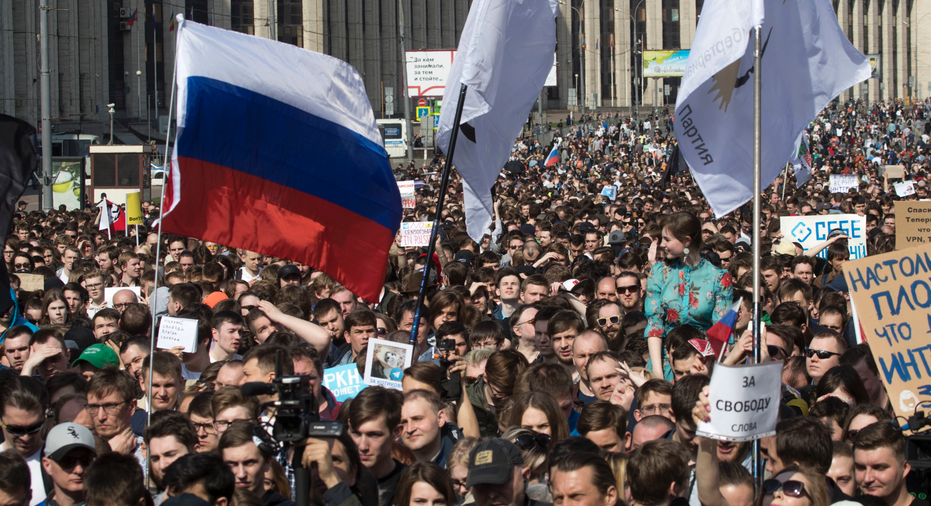Thousands rally in Moscow for internet freedom

MOSCOW – Some 10,000 people were rallying in Moscow on Monday to protest against recent restrictions on internet freedom in Russia.
Russian authorities this month began blocking popular messaging app Telegram over its refusal to hand over keys to its data encryption. Telegram, which was developed by Russian entrepreneur Pavel Durov, has refused to share data, citing privacy concerns. It has promised to keep the app running despite the ban.
In a battle to cripple Telegram's operations, the Russian communications watchdog this month blocked some servers owned by tech giants Google and Amazon, affecting millions of Russian websites.
Protesters flocked to a central street on Monday, which is a public holiday in Russia, to rally against the communications regulators actions. People were holding placards, some of which read "For the freedom of speech!" and "Down with the czar!"
Although the slogans focused on the attempts to block Telegram, many of the speakers from the stage blamed President Vladimir Putin for encouraging the restrictions on internet freedom. The protesters chanted "Russia without Putin!" and threw paper planes, which is Telegram's emblem.
The hashtag Digital Resistance supporting the Telegram protests was trending on Twitter on Monday.
Over the past few years Russia has adopted a flurry of legislation aimed at curtailing internet freedom and limiting data privacy. One of the laws requires mobile phone operators to store data on voice calls and messages for several months. Other legislation allows authorities to target activists by fining and even sending them to prison for social media posts.
Opposition leader Alexei Navalny, who gained prominence thanks to his blog exposing corruption among state officials, on Monday accused authorities of trying to breach citizens' privacy by exerting pressure on Telegram to share encryption keys.
"I turn on the TV and I see news that some guys... have decided that they have the right to read everything I message in Telegram," Navalny told the rally. "I'm not going to tolerate that."
Telegram's founder, Durov, in a social media post wrote that the rally was "unprecedented" and said that he felt "proud to have been born in the same country" as the protesters.



















